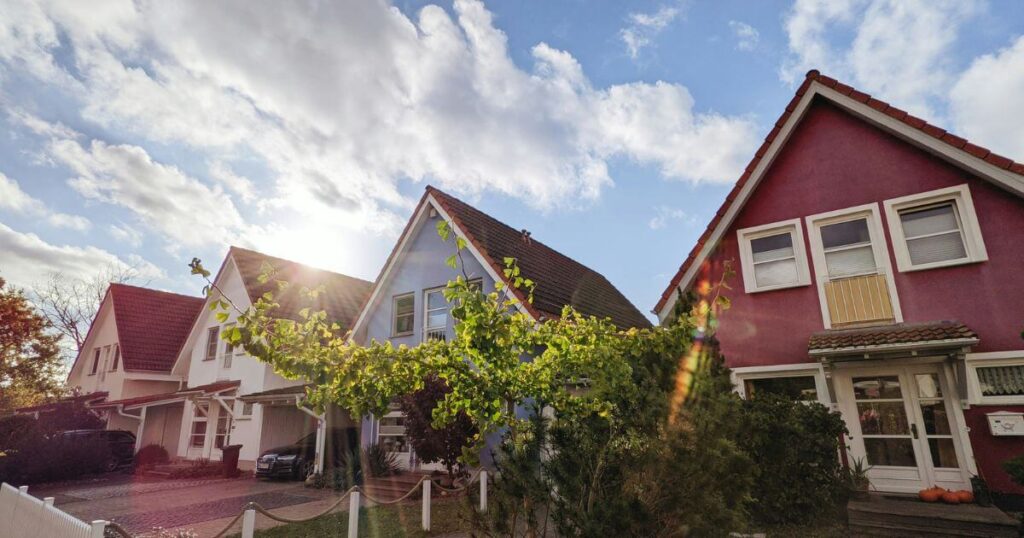
We are reader-supported. When you buy through links on our site, we may earn an affiliate commission.
Although it’s exciting, moving is never easy. Add in the fact that you’re moving for a new job, and the pressure only increases. You’ve nailed your interviews, and the company wants you to start “as soon as possible,” but you haven’t finalized your apartment search. In fact, you’re not even sure where to begin. It’s a lot of stress to take on at once.
Between your limited time and budget, you have to approach your task with a little more finesse than your average apartment hunter. You don’t have the luxury of a loose schedule, browsing property after property as you look for the perfect place. You need to act fast, and an apartment hunting checklist is a great start.
We’ll detail everything you need to know moving forward, touching on research, budgeting, taking tours and some essential documents you’ll need as you near the end of the process. Make a note of the four suggestions below, and use them to guide you while you explore your options.
1. Research the Building and Local Area
You’ll benefit from developing a basic idea of what you need in an apartment before you begin your search. Determine which amenities you can’t live without, the minimum amount of space you’re comfortable with, whether you need a place that allows pets and other details. With that framework, you can move forward.
You can use sites like Zillow, Craigslist and PadMapper to research properties. You’ll also want to learn about the building, landlord and management company by checking the Better Business Bureau for reviews or complaints. As you browse, pay attention to the area the property is in. This is just as crucial as your comfort and other preferences.
There are great web resources you can use to scout out a new location. If an area has a high crime rate, poor accessibility to public transit or other problems you can’t ignore, it’s best to search elsewhere. Sure, compromise is usually necessary when you’re on a strict timeline. But you have to consider your quality of life, since moving for a new job is more than a temporary stay.
2. Organize Your Housing Budget
The rental lifestyle isn’t cheap, and you’ll have to do your homework to calculate housing costs before you move. It’s an essential preliminary measure to ensure you’re not stuck spending more than you can afford on rent. It’ll also give you an understanding of what properties are within your price range.
You’ve likely heard of the “30 percent rule,” and it serves as a solid foundation for organizing your budget. Divide your annual income after tax by 40 to arrive at your rent threshold. This number will also have to account for expenses beyond rent, including nonessential utilities like TV and internet, as well as your renter’s insurance.
If you’re not confident in your number crunching, you can use a rent calculator to simplify the process. It’ll consider your monthly net income and debts and find you affordable apartments in your rental location of choice — an enormous convenience that narrows your search.
3. Plan a Trip to Tour the Property
The pictures online are sometimes poor representations of what an apartment really looks like. If the landlord or professional photographer took them, they’d likely show only the best attributes of their building, and this bias will hold you back in your search. The best way to determine the value of an apartment is to visit it yourself.
Gather info on four or five properties of interest you’d like to know more about, then contact the owners to schedule tours. Time permitting, you can set aside a day (or weekend) to see what the buildings are like for yourself, crossing them off your list if they don’t meet your expectations. Some of them will, and some of them won’t.
As you tour the apartments you’ve researched, write notes to reference later. You’ll want to know simple things like transit accessibility, damage or odors within the building, the opinions of neighbors and other minutiae. It’s also a good idea to take a few tools with you to get a better understanding of the unit.
Of course, this will be harder if you’re moving far away. If you really can’t take a tour, contact the landlord or property manager and request more photos if needed. Worst case scenario? Your apartment isn’t exactly what you wanted, but you can also start fresh next year. Moving for a new job isn’t without its risks.
4. Prepare the Necessary Documents
If you’ve happened across an apartment that looks like home and you’re ready to commit, come prepared. You don’t want to miss the opportunity to secure a unit if it’s a popular building. Having your documents organized will make the process quick and easy. You want to minimize the disadvantage moving for a new job can give you in a tough market. Be sure to take:
-
- Your social security card
- Your passport, driver’s license or state-issued ID
- A utility bill with your current address
- A letter from your employer
- Bank statements
You’ll also want to bring a checkbook in case the landlord asks you to make a deposit. When I toured my current apartment, I made the mistake of forgetting this. Cue me running around town trying to take out enough money from the local ATMs and risking my chance to nab the perfect place.
Lastly, minimize risk where you can. If you’re confident you’ve found the right building, don’t hesitate to sign the lease, but read it over beforehand and don’t agree to unreasonable terms or a monthly rate you can’t cover — even if you’re desperate.
Moving For a New Job
Keep this apartment hunting checklist close as you view properties. You could find one that looks like an excellent match, but after researching the area, something about the neighborhood might make you change your mind. You might find a place you love, but a tour could leave you thinking differently.
In other words, don’t rush. Though you’re in a hurry, moving for a new job, you’re liable to trip and stumble if you overextend yourself. Take things one step at a time, and when you finally reach your destination — a place to call your very own — you’ll see there was no reason to worry at all.







